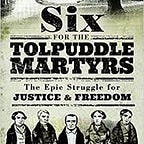Radical? Only in theory
The sudden emergence of a radical left alternative in the US — after a hiatus spanning more than four decades — has been a clarifying experience. None more so than for those of us who studied critical theory. I class myself as someone with a fairly good grasp of the limitations of theory, but was still taken aback when I found out that Wendy Brown and Judith Butler — critical theory’s power couple — actually donated to status quo candidates Elizabeth Warren and Kamala Harris respectively. I was shocked, but did I have a right to be?
While the principal architects of the left’s defeat were neoconservatives, the period of reaction from 1979 to the present is generally referred to as ‘neoliberalism’. This is more apt than many of us realise. It was the defection of suburban liberals to the political right that made the neoconservative revolution possible. It was their sustained opposition to the organised left that enabled the neoconservative revolution to endure.
The politics of this period is as much defined by the sophisticated rationalisations liberals give for their betrayal as the betrayal itself. Broadly speaking these rationalisations have come in two categories. There is what I call the liberal mourners who lament the defeat of the left and the inevitable détente with capital that reconciliation with this defeat entailed. (A kind of melancholic iteration of Thatcher’s “there is no alternative”). Then there is what I call the liberal messiahs whose skill has been to dress up bland, uninspiring centrist politics in a veneer of radicalism. This kind of messianic politics has its parallel in the academy where the honorific “radical” is attached to any set of ideas that eschew or obfuscate class.
First to the liberal mourners. Warren described herself as “capitalist to the bone” and prescribes precisely the legalistic solutions to capital’s excesses that Brown decries in her writings. Consider then this passage from Brown’s most recent book on neoliberalism. In light of her support of Warren, could it not be read as precisely an admission of defeat?
“[Neo]liberalism transmogrifies every human domain and endeavour, along with humans themselves, according to a specific image of the economic. All conduct is economic conduct; all spheres of existence are framed and measured by economic terms and metrics, even when those spheres are not directly monetized. In neoliberal reason and in domains governed by it, we are only and everywhere homooeconomicus.”
At least Warren had vague pretentions of being progressive. Harris has made a career out of cosying up to billionaires, placating their venality, and shafting the very communities liberals claim she represents. Butler has supported Harris for almost as long as she has waxed lyrical about radical equality.
Maybe as a result of a recent change of heart — or more likely, given the timing, an undertaking in brand management — Butler expressed belated support for Sanders and Warren in a blog post. And yet even here “capitalist exploitation” is reduced to a vector of discrimination alongside a list of other “isms”- and is placed last on that list!
“Radical inequality, which includes nationalism, white supremacy, violence against women, queer, and trans people, and capitalist exploitation.”
(For an excellent analysis of this blog post check out this critique from Roger N Lancaster)
No doubt there is more to Brown and Butler’s work than resignation and obfuscatory grandeur. But by the same token, isn’t their work especially appealing to the liberal class of mourners and messiahs? Aren’t those that read more into their work also more inclined to read more into Warren’s vacillations on campaign donations than mere weakness and a lack of political seriousness? Or to consider the symbolism of an African American woman as VP as posing a greater threat to capital than Medicare for All? Sometimes superficial readings are also more helpful.
At a bare minimum, critical theory is supposed to help us identify those rare moments when political opportunities arise. In this author’s opinion, Brown and Butler’s theories have failed this minimum test.
